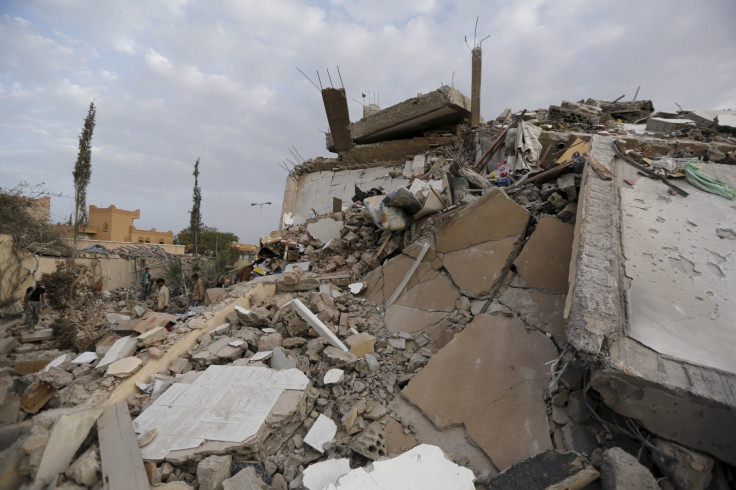Yemen: Saudi-led coalition declares ceasefire after air strikes in Taiz kill 120

Arab coalition forces have announced a five-day ceasefire in Yemen to allow humanitarian aid to reach civilians in the war zone, Saudi state media says.
The truce, which will take effect one minute before midnight on 26 July, comes after coalition air strikes in Taiz province reportedly killed 120 people, including civilians.
The decision was taken at the request of Yemen's exiled president Abd-Rabbu Mansour Hadi, the Saudi Press Agency said.
However, the SPA added that coalition forces would retaliate for any violation of the truce by Houthi rebels.
A letter from Hadi, who has taken refuge in Riyadh, to King Salman bin Abdulaziz of Saudi Arabia said the pause in fighting would allow the distribution of "the largest amount of humanitarian and medical assistance".
On 24 July, a coalition bombing raid on the Red Sea coastal town of Mokha killed at least 120 people, the Associated Press news agency reported.
The deadly air strikes targeted workers' housing near a power plant in the town, although it is not clear why.
"It just shows what is the trend now of the air strikes from the coalition," Hassan Boucenine of Doctors Without Borders told AP.
"Now, it's a house, it's a market, it's anything."
A resident of Taiz told the BBC that there was a shortage of most basic necessities, including diesel and vegetables.
"We have power cut. We have internet cut. We have everything cut," he said.
Saudi Arabia has been leading a coalition of nine Arab states in a bombing campaign against Houthi forces loyal to former Yemeni president Ali Abdullah Saleh since March.
It has enforced an aerial and naval blockade on the country and seeks to restore Hadi's government to power.
The UN has said up to 21 million people are in need of urgent humanitarian assistance in Yemen and as many as one million have been displaced by the fighting.
© Copyright IBTimes 2025. All rights reserved.




















